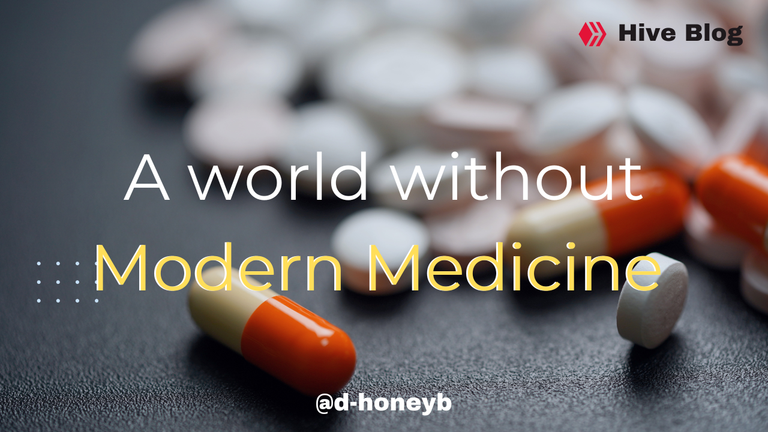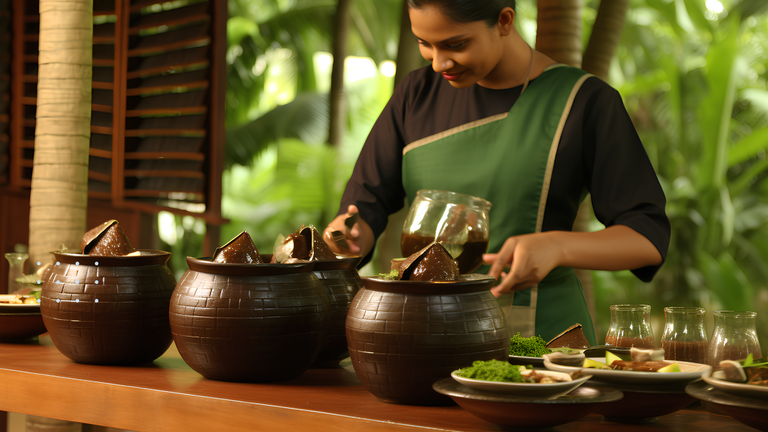
If the ability to manufacture modern medicine is lost, humanity might suffer significantly.The reliance on herbs, which have been the cornerstone of traditional medicine for centuries, would undoubtedly increase. However, the transition to 100% dependence on herbal remedies would come with substantial limitations and risks.
The Role of Herbal Medicine in Traditional Care
Herbs have been used for millennia to treat various ailments, long before the advent of modern medicine. Traditional healers have relied on local plants to manage everything from infections to chronic diseases. The knowledge passed down through generations has been vital for communities, especially in rural areas where access to modern healthcare is limited.
Herbal medicine has its strengths, particularly in treating mild to moderate conditions and in providing preventive care. For example, Moringa oleifera is widely used for its rich nutrient content and ability to combat malnutrition. Similarly, Artemisia annua (sweet wormwood) has been used in traditional Chinese medicine for thousands of years and is the source of artemisinin, a key component in modern malaria treatment.

The Limitations of Herbal Medicine
Despite its historical significance, herbal medicine has limitations that cannot be overlooked. One of the most significant challenges is the lack of precise diagnostic tools in traditional practices. Diagnosis is often based on symptoms, which can be misleading because many different diseases can present with similar symptoms. For instance, a fever could indicate malaria, typhoid, or even a simple viral infection, but without accurate diagnostic tools, the exact cause remains uncertain. This can lead to the use of incorrect or ineffective treatments.
Another major issue with herbal medicine is the uncertainty surrounding dosages. Traditional concoctions are often prepared based on experience and intuition rather than standardized measurements. This lack of standardization poses a significant risk, as incorrect dosages can lead to ineffective treatment or even harm. Some herbal contents if present in high percentage in the body can be toxic.
The Influence of Herbal Medicine on Modern Medicine
Modern medicine owes a great deal to herbal traditions. Many pharmaceutical drugs are derived from plants or were inspired by compounds found in nature. For example, aspirin was developed from salicylic acid found in willow bark,
Medicinal plants like hawthorn and foxglove have been used to treat cardiovascular disease and hypertension. These examples highlight how modern medicine has refined and enhanced the use of herbs, improving efficacy, safety, and accessibility. A lot of medical research today are influenced by herbs.
Modern medicine's ability to isolate active ingredients, determine their mechanisms of action, and develop precise dosages has revolutionized healthcare. It has also allowed for the development of treatments for conditions that were previously untreatable or poorly managed with traditional herbal remedies. The precision and predictability of modern pharmaceuticals have made them the preferred choice in most medical systems worldwide.
Can we depend on Herbs 100%?
While herbs would be crucial in a world without modern medicine, a complete reliance on them would lose serious problems. The effectiveness and safety of herbal medicine can vary widely due to the factors mentioned above. Moreover, the complexities of many modern diseases, such as cancer, cardiovascular diseases, and autoimmune disorders, often require treatments that go beyond what herbs alone can provide.
For instance, while herbal remedies can support overall health and manage some symptoms, they may not be sufficient to treat aggressive cancers or manage severe infections like HIV/AIDS or tuberculosis. Modern medicine, with its ability to produce antibiotics, antivirals, and chemotherapy agents, plays a crucial role in managing these conditions.
In conclusion, while herbs have played an essential role in human health for centuries and would continue to do so in the absence of modern medicine, the idea of depending entirely on them would be challenging. The advancements brought by modern medicine, particularly in diagnostics, standardization, and treatment efficacy, have addressed many of the limitations inherent in traditional herbal practices. Therefore, while herbs would remain valuable, the absence of modern medical practices would likely lead to significant gaps in healthcare, making 100% dependence on herbs an impractical and potentially dangerous proposition.
Where the use of modern and traditional medicine coexist, the ideal scenario would be to continue integrating both systems, leveraging the strengths of each to provide comprehensive and effective healthcare.
Thumbnail and image are from Canva
Posted Using InLeo Alpha


